Evolutionary Psychology
Studying Unpopular Ideas in Psychology
A report on the first-ever Heterodox Psychology Workshop.
Posted August 12, 2018
- Treating opioid addiction as a “disease” might actually hurt patients.
- The assignment of stiff penalties to criminals may have little effect when it comes to reducing crime into the future.
- Human behavior is the result of evolutionary forces such as natural selection.
- Some stereotypes might be partly accurate.
- The fact that conservatives are not represented well in academia is problematic for various reasons.
- Trigger warnings in college classrooms might actually increase stress.
These are just some of the not-so-popular ideas that were found at the first-ever Heterodox Psychology Workshop held at Chapman University in sunny southern California last week, organized by Richard Redding, a scholar with an extensive background in social and legal psychology at Chapman.
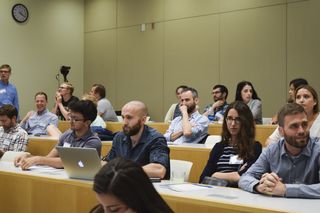
This conference may well have been the first of its kind to ever exist in the history of the behavioral sciences. As such, the energy was palpable. This event drew top scholars, including several Distinguished Professors, such as Rutgers’ Lee Jussim and UC Santa Barbara’s Leda Cosmides and John Tooby—as well as several endowed professors, including the University of Pennsylvania’s Philip Tetlock and Emory’s Scott Lilenfeld. Several notable up-and-comers were included among the speakers as well. In addition to such elite scholars from various areas within the behavioral sciences, this conference included dozens of graduate students and young faculty members in psychology from universities across North America and Europe.
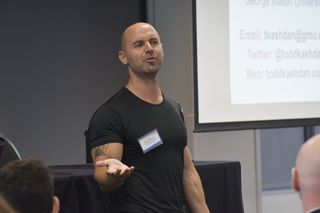
What made this conference so special pertained to the common bond among attendees. We were there not because we were all in the same sub-area of psychology. And we were not there because we studied the same content in the field. In fact, participants varied wildly from one another in terms of sub-specialty and content area.
What bonded the folks at this conference together is encapsulated in the concept of heterodoxy. Heterodoxy is kind of a fancy way of talking about the idea that there are “multiple orthodoxies” out there that exist concurrently. Embedded in the notion of heterodoxy is the idea that academic institutions should embrace a plurality of intellectual perspectives and traditions.
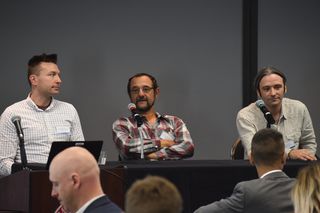
Participants at this conference are bonded by the fact that they have been brave enough to challenge prevailing narratives and perspectives in the field of psychology. These heterodox scholars are more interested in understanding the nature of the world and our place in it rather than in advancing a political agenda.
Sometimes the truth hurts. Sometimes scientific research findings don’t match commonly held beliefs. Think about the renowned astronomer Galileo. Through careful and mathematically based analyses, Galileo discovered unequivocal evidence consistent with Copernicus’ view of the solar system. The earth is yet another rock that follows an elliptical path around the sun. Well, of course, not everyone liked to hear this news and Galileo famously got a lot of heat for expressing it. Galileo was a heterodox scholar.
Across two and a half days, the scholars at the Heterodox Psychology Workshop presented on various ideas in psychology that have not been very popular in modern academic settings. Importantly, the participants were pretty heterogeneous in terms of intellectual and political ideologies. Some expressed strong adherence to very liberal political agendas while others identified as strong libertarians, for instance. Political and intellectual orientation were not the common themes of the conference. The common theme was the fact that the scholars attending this conference were brave—they had taken steps, at some point or another, to ask questions and provide information that has been, in one way or another, inconsistent with prevailing narratives in the field. They were bonded by the fact that they were more interested in advancing knowledge than in advancing a particular narrative or political agenda. And they shared a concern regarding modern academia—namely that the current political climate within academia is more stifling of work that challenges prevailing narratives than ever.
Highlights of the Heterodox Psychology Workshop
This event included several panel discussions, keynote addresses, and presentations—all dealing with heterodox research in some area of psychology. While I won’t summarize the whole conference, here are some highlights:
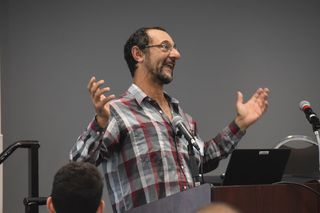
- Lee Jussim’s keynote address: How to Be a Rabble Rouser in Science was a great start to the conference.
Given without any fancy PowerPoint slides, Dr. Jussim, a highly renowned social psychologist (and Distinguished Professor of Psychology at Rutgers University) spoke about his work in the field of social perception. Like many social psychologists, he started out studying processes related to social stereotypes—processes such as implicit bias or the self-fulfilling prophecy. Along the way, as part of the nature of doing that research, Dr. Jussim examined the effects of stereotype accuracy. Separate from whether stereotypes are often the result of irrational psychological biases, are they ever true? Dr. Jussim discovered something that he immediately knew would not be very popular among his academic colleagues: Yes, under some conditions some stereotypes have been documented to be accurate. Not everyone liked to hear this. But Dr. Jussim, whose scientific training led him to put knowledge advancement ahead of politics, didn’t really care. And he went onto a storied career as a top researcher in the field. So you can be both a respected member of the academic community and a rabble rouser at the same time!
- Sally Satel’s keynote address discussed her experiences in challenging prevailing disease-based models to the current opioid crisis.
A faculty member in psychiatry at Yale, Dr. Satel has a long history of questioning mainstream approaches within the field of psychiatry. These days, Big Pharmaceuticals seem to be running much of the show—and healthcare professionals, across the entire industry, famously seek pharmaceutical solutions to problems by default. Well guess what? Sally presented all kinds of evidence showing that non-pharmaceutical solutions to opioid addiction, such as behaviorally based treatments, have, in many cases, proven to be more effective than pharmaceutical-based solutions. Along the way, Dr. Satel has questioned whether it is in the interest of patients to conceptualize opioid addiction as “a disease.” Not everyone in the field likes to hear this—but, Sally is a brave scholar and guess what? She is more interested in getting it right than in standing in line with the prevailing narrative.
-
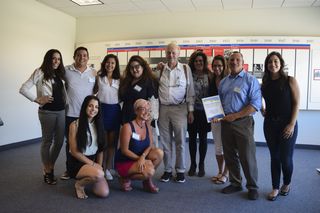 Evolutionary psychologists at Heterodox WorkshopSource: Richard Redding - used with permission
Evolutionary psychologists at Heterodox WorkshopSource: Richard Redding - used with permissionLeda Cosmides and John Tooby’s keynote address focused on the blasphemous idea that human behavior might be the result of natural selection and other evolutionary forces.

If you know me, then you know I was thrilled to get to meet two of the core founders of the field of evolutionary psychology, Leda Cosmides and John Tooby of UC Santa Barbara. What an honor this was for me. And their keynote address, focusing on their work in pioneering the field of evolutionary psychology, was nothing short of inspirational. You see, while modern scholars in the field of evolutionary psychology think that the current resistance to the basic ideas of evolutionary psychology is somehow unique, Drs. Cosmides and Tooby made a strong case showing that the resistance to the field has, in fact, been around for decades. And get this: Their pioneering work in shaping the field was done when they were, guess what … untenured professors. Talk about brave! But you know, they knew that they were right - they were right in thinking that Darwin’s ideas had extraordinary power to help illuminate questions of human behavior. So they forged forward in spite of intensive political resistance. And we now understand what it means to be human much better as a result. Again, these scholars were more interested in doing good science than in just standing in line with the prevailing narratives in the field.
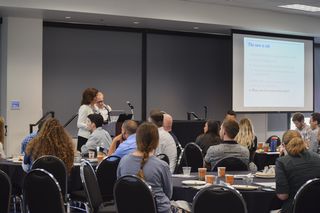
The summaries of the talks in this section address just a slice of conference. In the coming weeks, I plan to post more articles related to this historically unique and important conference. My goal in these posts is consistent with the goals of the conference—to help encourage and inspire students and scholars in the behavioral sciences to do their best work, even if the questions they are asking don’t fall within prevailing narratives.
History and Challenges to Prevailing Narratives
If history tells us anything, it tells us that prevailing narratives have a limited shelf life. And challenging prevailing narratives, in a truly revolutionary sense, is what ultimately leads to positive change. Slavery ended in the United States because brave thinkers and soldiers at the time challenged the prevailing narrative. Sexism has been challenged in the United States over the past several decades, and women and girls have been provided, as a result, with unprecedented opportunities, because so many Americans have stood up and challenged prevailing narratives. We now know that the earth revolves around the sun and not the other way around because brave thinkers such as Copernicus and Galileo challenged prevailing narratives. We know that human beings are the product of such evolutionary forces as natural selection, because Charles Darwin challenged the prevailing narratives.
Bottom Line
I cannot tell you how inspired I was to be part of this conference. And I was thrilled that several of my current students and alumni were able to take part. If you are a scholar or student in the behavioral sciences, make sure that you are putting science ahead of politics. By doing so, you will help make sure that our understanding of human psychology is on-target. And only when we really understand the nature of the human condition can we work together to make positive change for our shared future.

Hats off to Richard Redding, conference organizer sine qua non, Lonnise Magallanez, special assistant for the conference, and to all of the participants who are taking a stand to prioritize science over politics in the behavioral sciences at this critical time in our history.




